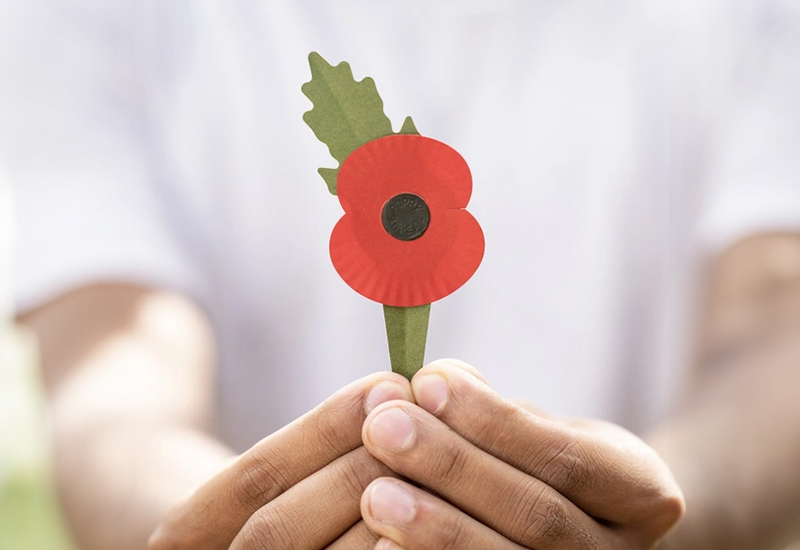Whenever the Royal British Legion, Portugal Branch hosts an event, we almost always have a prize draw. The proceeds go to the Poppy Appeal and I was asked recently, “What exactly is the Poppy Appeal?”
WORDS Jo Tarling
The Poppy Appeal is the Royal British Legion’s biggest fundraising campaign, held every year in November during the period of remembrance. It was started in 1921 and the proceeds from this campaign have two purposes: to remember those who made the ultimate sacrifice and to raise money to help those who have been left disadvantaged by their time in the Armed Forces.
The poppy became a symbol of remembrance and hope for a peaceful future in the aftermath of the First World War. Since 1921, our collectors have been at the heart of the Poppy Appeal.
Things you may not know about poppies:
- There are about 250 species of poppies grown across the world.
- Poppies grew on battlefields because of rubble! Poppies sprung up in their thousands on Flanders’ fields after the fighting had ceased in World War I because of the rubble left behind after artillery bombardments.
- Remembrance poppies were designed to be made with one hand. Assembling the poppies in this way allowed veterans who had lost an arm to work on the production line. The factory, based in Richmond, London, still employs disabled veterans, and they make approximately 36 million poppies each year.
- Scottish remembrance poppies look different from the rest of the UK.
- Scottish poppies are made exclusively in the Lady Haig Poppy Factory in Edinburgh. When it was established in 1926, this factory used a different design of four petals and no leaf, which they still use to this day.
- Morphine is created from the milky latex in the seed head of the opium poppy. For this reason, the poppy is featured on the Royal College of Anaesthetists coat of arms.
- Poppy seeds are banned in China, Taiwan and Singapore and, Because opiate traces can be found in poppy seeds, they are banned as a food ingredient in China, Taiwan and Singapore.
- There were poppies in Tutankhamun’s tomb. In Ancient Egypt, the poppy was emblematic of Osiris, the god of death.
- From October 2023, there will be a new poppy made from renewable fibres that can be recycled in ordinary paper recycling collections. It was created over three years with input from experts at University College London and has a 40% smaller carbon footprint.
The Poppy Appeal 2023 starts on 29 October and runs through until Remembrance Sunday on 12 November. There will be a Remembrance Day Church service held at St. Luke’s Anglican Church, Gorjôes – a lovely little church in a beautiful setting. Everyone is welcome. People should gather by the War Memorial by 10.45 am. The minister, crucifer and attendants will process out in time to say the prayers before the Last Post and the Silence.
Jo Tarling is a media rep for the Portugal and Atlantic Islands Branch of the Royal British Legion
Photo courtesy of www.britishlegion.org.uk













